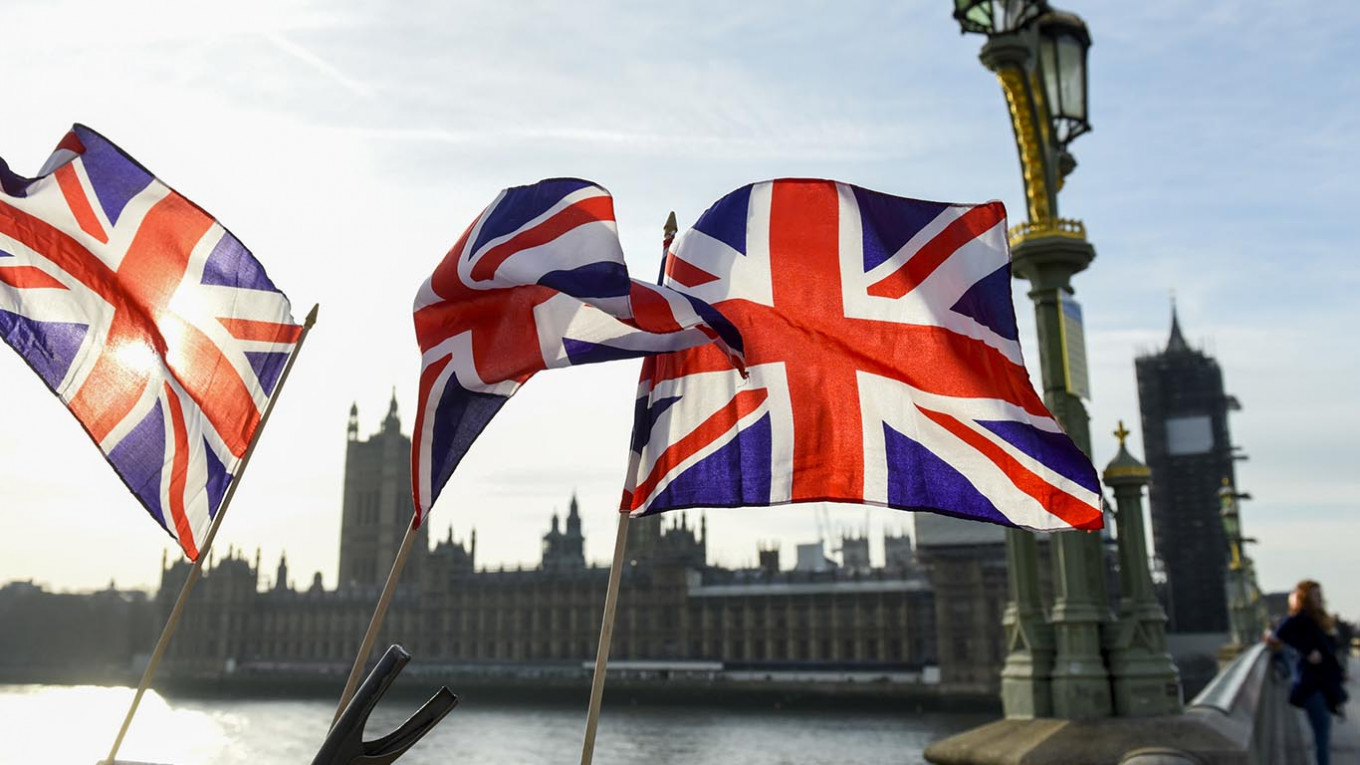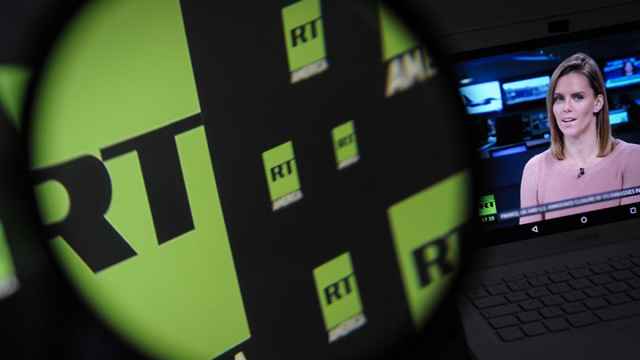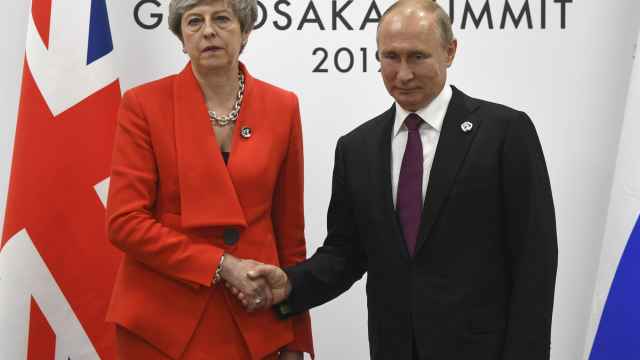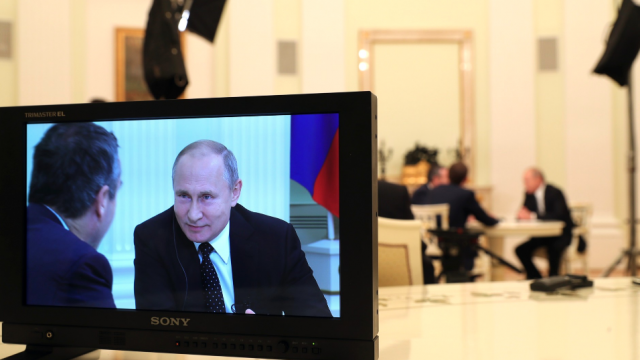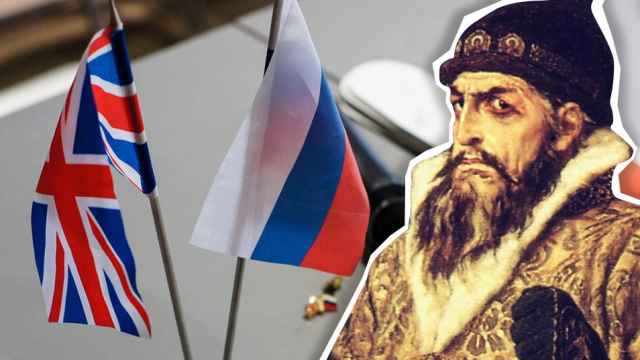Last November, the month before a general election that ultimately handed Boris Johnson’s Conservatives an 80-seat parliamentary majority, Britain’s Intelligence and Security Committee (ISC) sounded the alarm: Downing Street, the ISC’s then-chair Dominic Grieve protested, was delaying the release of a major report on the threat from Russia.
Grieve, a former attorney general critical of leaks, declined to disclose any details of the report’s contents, even as it became clear that it would not come out until after the election and the appointment of a new ISC.
Nonetheless, Number 10’s shiftiness combined with new revelations about Russian donations to the Conservative Party and old suspicions about foreign interference in the U.K.’s EU and Scottish independence referendums to fuel rampant speculation.
The longer the report languished, the more convinced partisans became that the suppressed document contained explosive, potentially career-ending details — a view that this summer’s intrigue surrounding the ISC’s composition and chairmanship only reinforced in calling attention to Downing Street’s determination to stack the ISC with loyalists.
On Tuesday morning, the report finally saw the light of day. Divided into two sections — one on the threat facing the U.K. and another on the country’s response — and moderately redacted, the 55-page report echoes the Mueller report in its politicization though not its substance, offering analysis as well as policy recommendations where the U.S. Justice Department-appointed special counsel confined himself to an almost forensic reconstruction of Russia’s meddling in the 2016 U.S. presidential election and the events that followed.
Far from an indictment of a particular party or prime minister as soft on, or beholden to, Moscow, the report spares no one in its qualified criticism of 20 years of U.K. policy, as pursued by Labour and Conservative governments alike and as shaped by both ministers and civil servants.
Still, the ISC is nothing if not charitable throughout, accepting that “there will be natural limits to the extent to which [ministers] can devote time to Russia” and describing British intelligence’s long preoccupation with threats other than Russia as “understandable” given “the very considerable pressures on [it] since 9/11.”
Tories may wince when they read that David Cameron’s government “fail[ed] to prepare” for the disinformation threat after the 2014 vote, which the ISC appears to conclude was targeted by Russia, and that Theresa May’s administration neither “s[aw] [n]or sought evidence of successful interference in U.K. democratic processes or any activity that has had a material impact on an election.”
But Johnson can seize on the ISC’s finding that “until recently, the Government had badly underestimated the Russian threat and the response it required” as praise for May’s government, in which he served as foreign secretary. He can also claim to be continuing its work, having imposed human rights sanctions on a number of Russian officials earlier this month.
The report holds value not as a piece of opposition research but as a frank examination of the U.K.’s Russia policy since the turn of the century. It serves as a stark admission of defeat when it comes to the issue of Russian expatriates, conceding that “Russian influence in the U.K. is ‘the new normal’” and that any action taken after decades of “welcoming oligarchs with open arms” would amount to “trying to shut the stable door” after the horse has bolted. “The links of the Russian elite to the U.K. … cannot be untangled,” it says, urging the U.K. to do the only thing it can: “damage limitation.”
A cautiously triumphant note is sounded on what the ISC calls hostile state activity. The report touts the U.K.-led international response to the Salisbury affair as “unprecedented,” as “impressive” in its pace, as “a stark comparison” with the steps taken after Aleksandr Litvinenko’s poisoning in 2006, and as “sen[ding] a strong message to Russia.”
Yet it cautions against “allow[ing] [it] to become the high watermark in international unity over the Russia threat,” appears skeptical of assurances that Russians like Sergei Skripal, the target of the 2018 attack, are truly safe in the U.K., and worries aloud that Russian intelligence “will learn from [its] errors and become more difficult to detect and protect against as a result.”
The ISC comes to Whitehall’s defense in suggesting that these problems are not unique to — and have not been uniquely bungled by — Britain. It notes that there are still countries that “do not share the U.K.’s concerns about Russia” or “are not willing to take such an assertive approach towards Russia’s malign activities” and does not shy away from calling them out, identifying Austria, Israel, Italy, and France as accommodating Russia in one way or another, such as by “mov[ing] closer to the Kremlin.”
Doing the same would imperil “the U.K.’s [international] leadership and credibility,” the report warns, calling on the U.K. to go so far as to limit its engagement with Russia to “direct conversations … in times of crisis.” After last year’s general election, in which both Labour and the Conservatives reduced Russia to a political football and neglected to spell out a vision for reviving U.K.–Russia relations, it is hard to be shocked by the foreclosure of the possibility of constructive diplomacy.
To the ISC’s credit, it largely avoids caricature, even as it prescribes a severe policy of minimal engagement. Although a 164-word answer is offered to the question what does Russia want? it is refreshing to see “relatively limited” aims ascribed to Moscow’s international behavior: Russia, the ISC argues, “wishes to be seen as a resurgent ‘great power’ … and to ensure that the privileged position of its leadership clique is not damaged.” It refrains from exaggerating either Russia’s strength or its weakness and recognizes that “limitations” on engagement are not costless, “making,” as they do, “deciphering Russian leadership intent even more difficult.” And the ISC seems to accept the view of former Foreign Secretary Jeremy Hunt that Russia is not the long-term challenge that China poses.
Whether the report will have a political impact remains to be seen.
However, in its present form, it is more likely to provide Britain’s two main parties with a Russia policy blueprint — one from which they are unlikely to stray too far given the vacuum of thinking on how to deal with Moscow — than to politically damage Johnson and his government, a letdown for partisans but a legacy of consequence all the same.
A Message from The Moscow Times:
Dear readers,
We are facing unprecedented challenges. Russia's Prosecutor General's Office has designated The Moscow Times as an "undesirable" organization, criminalizing our work and putting our staff at risk of prosecution. This follows our earlier unjust labeling as a "foreign agent."
These actions are direct attempts to silence independent journalism in Russia. The authorities claim our work "discredits the decisions of the Russian leadership." We see things differently: we strive to provide accurate, unbiased reporting on Russia.
We, the journalists of The Moscow Times, refuse to be silenced. But to continue our work, we need your help.
Your support, no matter how small, makes a world of difference. If you can, please support us monthly starting from just $2. It's quick to set up, and every contribution makes a significant impact.
By supporting The Moscow Times, you're defending open, independent journalism in the face of repression. Thank you for standing with us.
Remind me later.



